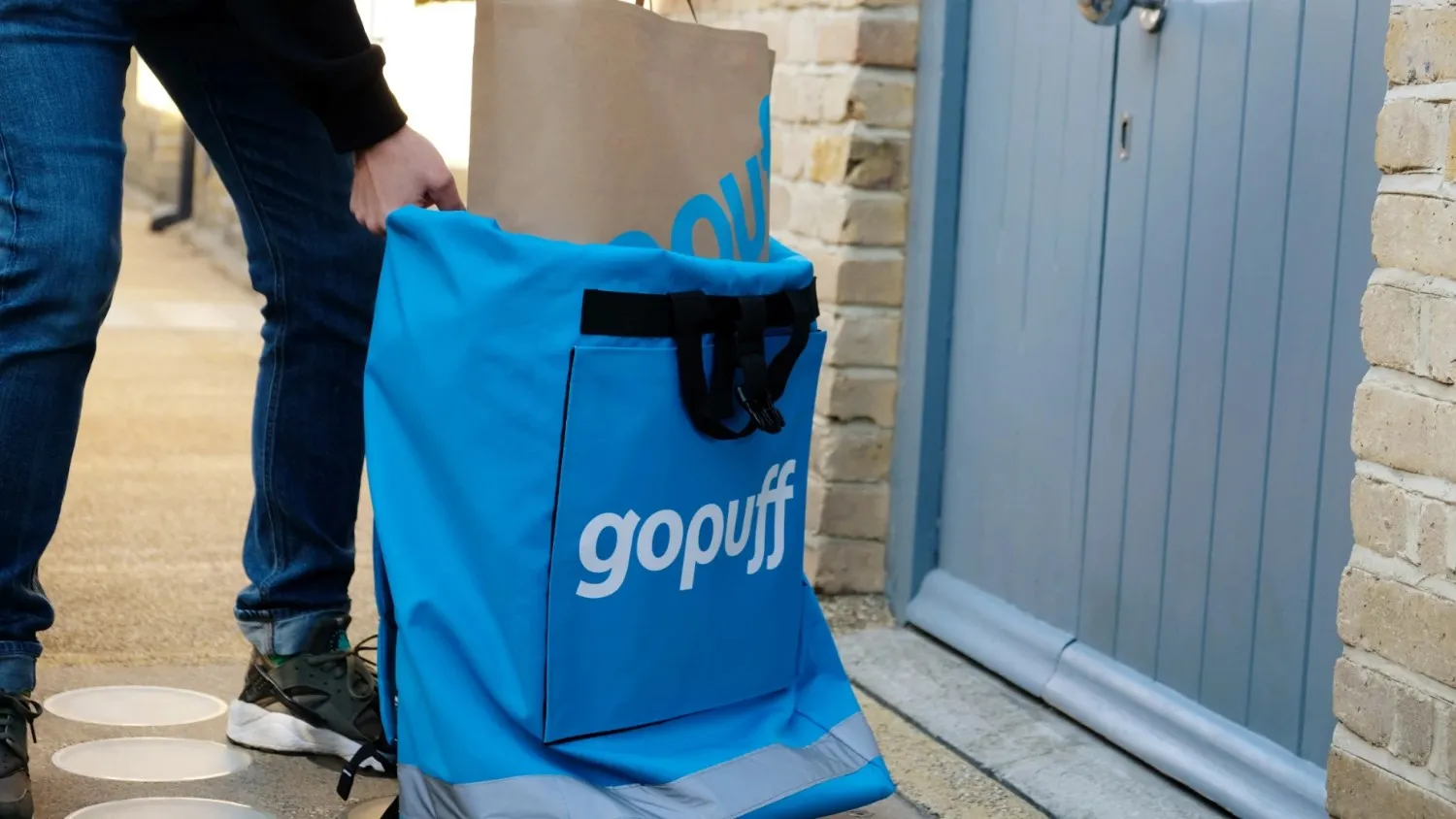Amazon has rolled out ultra-fast grocery delivery across the UK through a partnership with Gopuff, promising delivery times as quick as 15 minutes for thousands of products including fresh food, alcohol, and household essentials.
The nationwide expansion follows a successful trial in Birmingham and Salford that began in May. The service now covers 16 cities including Bristol, Cambridge, Cardiff, Chessington, Coventry, Derby, Leeds, Liverpool, London, Manchester, Newcastle, Nottingham, Sheffield, and Swansea.
“We are always working to give customers more choice and more convenient options to have their groceries delivered,” said Russell Jones, Amazon’s Director of Grocery Partnerships. “Partnering with Gopuff and other grocery partners is an important way of offering Amazon customers their favourite stores and brands, ordered via our website. The new launch with Gopuff brings our customers access to a convenient and affordable way to access their everyday groceries.”
How It Works
Gopuff, a Pennsylvania-based company that expanded rapidly during the COVID-19 pandemic, operates a network of “micro-fulfillment centers” strategically positioned near customer locations. This infrastructure enables the 24/7 delivery service that promises under-hour delivery times, with some orders arriving in as little as 15 minutes.
The service joins Amazon’s existing grocery partnerships with retailers like Morrisons, Iceland, and Co-op, adding another option to Amazon’s multi-faceted grocery strategy in the UK.
Similar Posts
The Delivery Workforce Reality
Neither Amazon nor Gopuff has provided specific details about the delivery workforce that will handle these 15-minute deliveries. The rapid delivery model typically relies on couriers who must maintain extremely tight schedules to meet the advertised delivery windows.
The expansion comes during a period when gig economy delivery workers across the UK have raised concerns about working conditions, compensation structures, and the pressures of meeting increasingly demanding delivery timeframes.
Industry analysts note that ultra-fast delivery models often create challenging working conditions. “The economics of 15-minute delivery puts enormous pressure on the entire supply chain, particularly the delivery workers who must navigate urban environments at increasing speeds,” one retail analyst told trade publications earlier this year.
Infrastructure and Operations
Gopuff operates numerous small-scale warehouses positioned strategically throughout urban areas. This localized approach reduces travel distances but requires a substantial workforce to staff both the fulfillment centers and delivery operations around the clock.
Russell Jones, Amazon’s Director of Grocery Partnerships, emphasized customer convenience but didn’t address the labor requirements: “We are always working to give customers more choice and more convenient options to have their groceries delivered.”
Industry Context and Competition
The partnership intensifies competition in the UK’s rapid delivery sector, which has already seen workforce-related controversies. Several competitors have exited the market, including Turkey-based Getir, which withdrew from the UK last year amid financial pressures and scrutiny of its labor practices.
Traditional supermarkets have responded with their own rapid services like Tesco’s “Whoosh” and Ocado’s “Zoom,” creating additional demand for delivery workers across the sector.
Consumer Economics vs. Labor Economics
While consumers benefit from competitive pricing (Gopuff matches 50 essential items to Aldi prices) and special promotions, the economic model behind ultra-fast delivery has faced questions about sustainability – both financial and human.
The service is available at Amazon.co.uk/gopuff and via the Amazon app. Customers can check delivery options in their area by entering their postcode at Amazon.co.uk/grocery.
The rapid growth of quick commerce continues to transform the UK grocery landscape, with delivery workers at the frontline of this retail revolution – yet their experiences remain largely undocumented in the companies’ announcements. The outsourcing of delivery work to gig economy workers raises important questions about the true cost of consumer convenience.



















